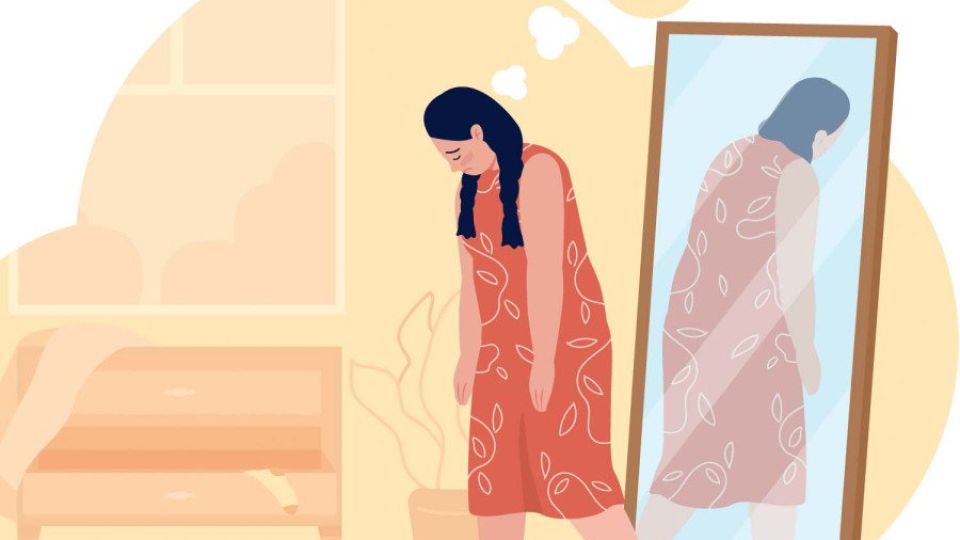October 11, 2023
KATHMANDU – In a world where society repeatedly tells us we’re not good enough, self-doubt creeps in. We scrutinise ourselves in the mirror, questioning every detail of our appearance. Uncertain, we seek answers, comparing ourselves to celebrities or even family members. This endless cycle breeds perpetual dissatisfaction.
In today’s digital age, where image-driven platforms dominate our social interactions, it comes as no surprise that body image issues have become increasingly prevalent among individuals of all genders and ages. We find ourselves trapped in a never-ending cycle of comparison, constantly comparing our bodies to others and striving to attain an elusive standard of beauty. Social media, magazines and even everyday conversations have fueled this toxic culture of social comparison, leaving us in constant dissatisfaction with our own bodies and vulnerable to negative emotional and psychological consequences.
Now, I’m not saying it is wrong to compare ourselves. In fact, it is a natural human tendency to want to understand and evaluate ourselves. In an attempt to do so, we seek information around us and compare ourselves to what we see on an everyday basis. Comparison can be healthy and motivating in certain contexts. Unfortunately, in today’s day and age, what we are surrounded by are posters of models selling us products to look like them. We are also exposed to new makeup trends, filters and edited and photoshopped images of supposed “perfection” all over the internet. These images distort our perception of what is real and attainable. All of these set the so-called beauty standards so high that one cannot help but feel inferior in comparison, irrespective of gender, age, and background.
The sadder truth is that the impact of social comparison on body image extends far beyond mere dissatisfaction. It may breed a sense of inadequacy, leading to serious consequences such as eating disorders, depression, anxiety, and low self-esteem. Moreover, these issues can manifest in harmful behaviours such as excessive dieting, over-exercising, and engaging in risky cosmetic procedures, all in pursuit of an unattainable standard of beauty. They steal our confidence and disturb our emotional well-being as we become preoccupied with trying to fit in and conform to societal expectations.
Getting rid of harmful beauty standards in the media is a complex task. It involves education, raising awareness, and changing societal values, which will take time.
Meanwhile, as consumers, we can be mindful of how we react to these standards. We should establish our own perception of reality. Here are a few positive perspectives to consider:
Challenge the image that the media is trying to sell
There will always be something trending in the media that everyone tries to follow. What was once considered beautiful might get criticised the next moment, and the same goes true for the opposite too.
An example of this is the extra-thin eyebrow trend we witnessed in the 90s and the early 2000s. Women were plucking their eyebrows so thin that it was barely visible. But today’s trend is the exact opposite, with everyone drawing it on to make it look fuller and thicker.
Beauty trends always change, swinging from one extreme to another. If you don’t fit the current trend, it doesn’t mean there’s something wrong with you. Let the media show what it wants. What truly matters is how you see yourself, not what others say about you. Define your own worth.
Practice focusing on the positive aspects
However dissatisfied you may be with yourself and your features, remember that you are living someone else’s ideal life. Your appearance is an ideal look for another person. No matter how unhappy you are with the colour of your skin or the texture of your hair, someone else is comparing themselves to you and wishes to have the features you have, just like you are comparing yourself to others.
It takes effort and intention to focus on the positive aspects of your body. If you only ruminate over what you don’t like, you will soon forget things you do like about yourself. So, take a moment to list what you appreciate about your body. Also, the next time you get ready, enhance the features you like instead of hiding what you don’t.
Identify and challenge the negative self-talk
Feeling inadequate due to comparisons often leads to negative self-talk. But remember, thoughts aren’t always true. Question them: Are they facts or just opinions? Is it realistic? What proof supports this thought?
A helpful trick I’ve used with clients is this: Place a childhood photo on your mirror or phone wallpaper. When you criticise yourself, remember you’re criticising that innocent child, too. So, just accept yourself; no one else defines you.


